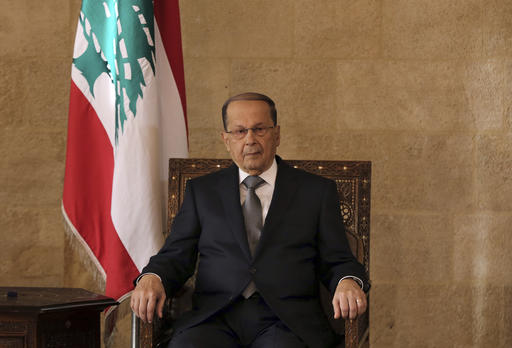
President Michel Aoun announced denied on Tuesday that his Free Patriotic Movement’s stance on the electoral law “is sectarian,” and rejected proportional representation system as being proposed stressing that it should have “restraints” or else it would be equivalent to a sudden abolition of political sectarianism.
Aoun claimed that the aim in changing the electoral law is to achieve fair representation stressing that the balance of power should change.”
“Changing the electoral law is aimed at achieving fair representation,” Aoun told his visitors at the Baabda Palace.
“Aoun outlined that three reasons that are preventing an agreement on a new electoral law.
1- “Every leader controlling his sectarian community does not want the minority in that community to be represented and does not want the emergence of an opposition popular bloc.”
2- “Some parties fear a change in the balance of power, and certainly the balance of power should change, or else we would have kept the 1992 or 2000 law.”
3- “Each party wants to steal some parliamentary seats from ‘its neighbor’, and ‘Christians are everyone’s neighbors’, and here lies the problem.”
He stressed that the FPM’s stance “is not sectarian” but rather aimed at “achieving justice and equality.”
“Today they want a proportional representation law without restraints, and this is almost equivalent to the full abolition of political sectarianism, but we are refusing this and demanding restraints, including a qualification system that allows the election of competent candidates who represent their sects, and we are open to any proposal that truly achieves these goals,” Aoun added.
Aoun’s son-in-law FPM chief Gebran Bassil proposed recently a hybrid electoral law the so called ‘qualification law’ .In the first round, voting takes place in the current 26 districts ( as per the 1960 law) and voters can only vote for the candidates of their own sect . Two candidates for each sectarian seat qualify for the second round during which voting would take place in 10 newly-proposed electoral districts and according to a non-sectarian proportional representation polling system.
The electoral system determines how votes are translated into seats and therefore, how the sectarian/political elite predetermine their shares.
Most of the parties have dismissed the proposed qualification system as “divisive” and counterproductive.

Leave a Reply
You must be logged in to post a comment.